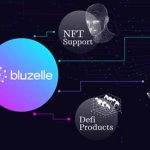Bluzelle 2.0 – The Past, Present and Future of the Creator Economy
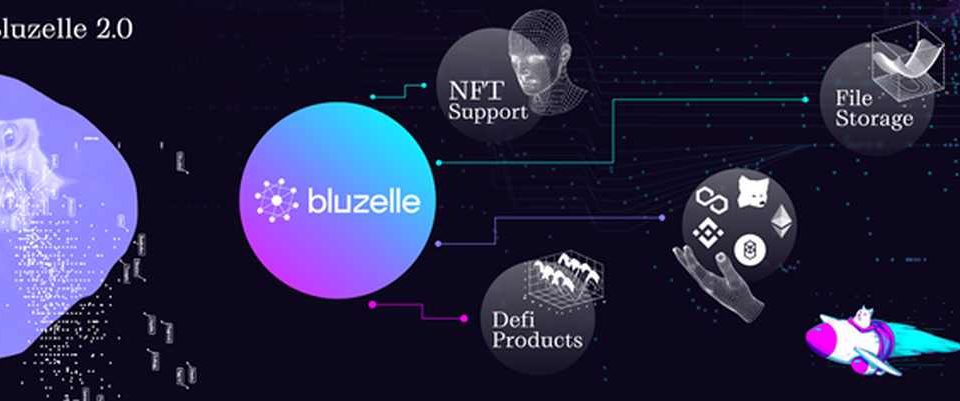
Back in March, we wrote about Bluzelle after the blockchain startup partnered with $50B data infrastructure leader Equinix to enable secure cloud-hosted PoS validators for the first time.
For some of our readers who may not know what Bluzelle does, the startup provides a decentralized storage network for the creator economy by offering a complete and fully integrated stack of blockchain applications, middleware, and data services.
A lot has changed since the company was founded three years ago. In the past twelve months, for example, we’ve all witnessed the rise of three trends:
1. Defi as a true alternative to the existing financial systems
2. The emergence of non-fungible tokens (NFTs) as a way to manage intellectual property.
3. The distancing of publishing from the incumbents because of censorship concerns.
Bluzelle sees the above as signs of a megatrend: the emergence of the creator economy through decentralization.
Creator economy is a term coined by futurist Paul Saffo to describe our shift from consumers of content to creators of content. Today, the creator economy is built by over 50 million independent content creators, curators, and community builders including social media influencers, bloggers, and videographers, plus the software and finance tools designed to help them with growth and monetization.
Creators are artists, musicians, scientists, developers, mathematicians, or financiers — they are all using crypto and blockchain technology to create new products where they have control.
So, how does Bluzelle fit into the new era of the creator economy? When a creator creates a story, a work of art, or an NFT, their works need to be protected and the creators need to receive exclusive rights to the use and distribution of their work. That’s where Bluzelle comes in. Whether you are an artist, musician, scientist, publisher, or developer, Bluzelle protects the intellectual property of all creators with 247 availability.
That’s not all. Also, with its own 10,000 TPS blockchain, multiple modules, and a validator network, Bluzelle is evolving beyond the database to full decentralized storage, including data, files, and more. Many projects were asking for certain features and that we could quickly accommodate and make Bluzelle bigger than before and bring greater utility to the network.
Enter Bluzelle 2.0.
With millions of creators now creating their own NFTs, Bluzelle now stores NFT files over its decentralized storage network, ensuring that it remains secure, always available, and cannot be tampered with. The Bluzelle’s decentralized storage layer is the blood for this creator economy. Bluzelle gives creators the ability to store their intellectual property in a way that’s secure, always available, and censorship-resistant.
To celebrate moving to Bluzelle 2.0, the startup also redesigned its Bluzelle brand. The name stays the same but the brand shows growth to fully support the creator economy. The redesign includes the following:
- The brand redesign to reflect this new path.
- Evolution of Bluzelle to be more than a database.
- Bluzelle’s storage solution is the home for NFTs.
- The multi-month incentivized network utility program, Call of Data.
- Delivering Defi for BLZ holders
- What’s being released next
The Brand Redesign
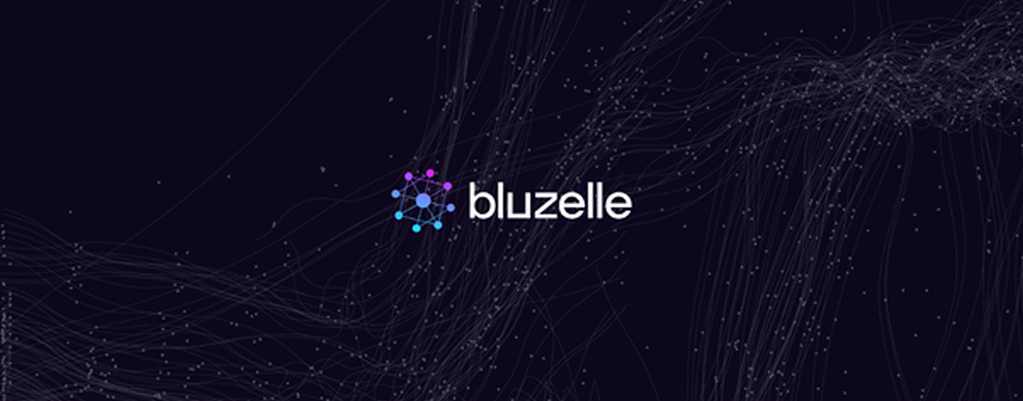
Nothing rests. Everything is a remix.
What is old is new again. This happens time and time again. From music to art to fashion. Science, math, and finance is a remix of the past to create something new and innovative.
Bluzelle spiced things up and mixed up portraits of the most relevant scientists in our history with physics-inspired graphics, memes, and data-visualization aesthetics. The result? A perfect remix: the sweet spot between the science and creativity living inside Bluzelle, a convergence of the past and the future.

This explains why the Bluzelle brand features images in the public domain, like renaissance portraits of famous scientists adapted to Bluzelle’s aesthetic. These sorts of art-historical images represent the network being under public control.
Creative and Free, but educational and rebellious.
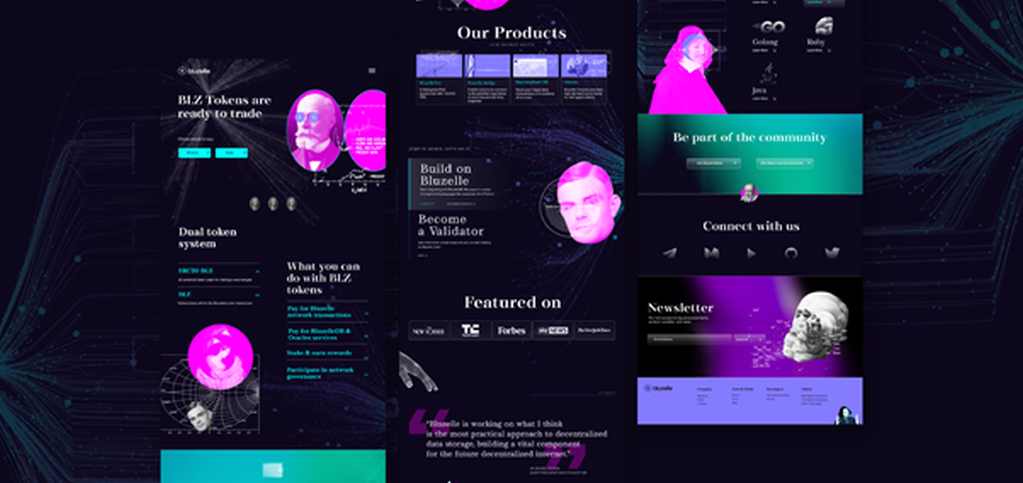
Of course, Bluzell couldn’t visually neglect the fact that Bluzelle is data, storage, and infrastructure. Therefore, a solid technological presence had to be included. This is reflected in the dotted swarms representing data to accompany the other visual elements that are present, sometimes colorfully.
Logo and Icon Redesign
In the previous logo version, all connections were pointing to the center of the circle as the main element. The redesign focuses on each connection, highlighting the importance of the individual dots and reinforcing the idea of decentralized storage.
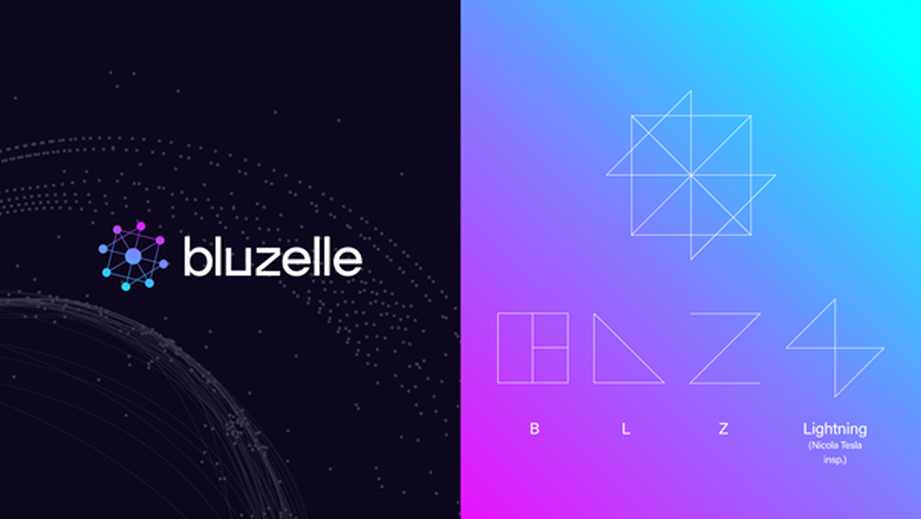
The new icon redesign includes a lightning silhouette and the letters B, L, Z. The bolt symbolizes the idea of an endless exchange of information happening at lightning speed. We also changed the line’s directions so they are now interconnected instead of pointing towards the center circle.
Web 3.0 belongs to the creators.
Developers, musicians, artists, and scientists now have the means to control their creations and keep them secure and always available.
More than a Database
Bluzelle started out as a decentralized database but the company has grown to be so much more. The biggest addition is file storage to Bluzelle. Demand was there, especially with NFTs – which we will explain further in this post. They just didn’t limit themselves to data when all the pieces were there to not only do more but do it even better. This is all for one objective – increase utility on the Bluzelle network.
Bluzelle 2.0 is MongoDB + IPFS + Filecoin + ChainLink all in one.
In 2021 Bluzelle rapidly delivered a series of modules:
- Staking
- Cross-chain bridges
- Mainnet databases
- Oracles
- And now file storage
Bluzelle has tied all the pieces together and connected them all in one place for Bluzelle 2.0. For example, on one platform a creator can get everything they need to build. Whether you are an artist, scientist, DeFi developer, you will need all the above. Instead of going to multiple places for your infrastructure needs, Bluzelle can provide all in one place. And by adding full EVM support, we are able to support not just Ethereum but also Binance Smart Chain, Polygon, and Fantom.
A DeFi application and a scientist both need to store files and data, get real-world data through oracles, and be connected to other chains. Below is a table of what sets Bluzelle apart from other storage providers:
| Feature | Other providers | Bluzelle |
| Replication and redundancy | You pay to store on a host. If you want more reliability or backups, you have to pay to store on multiple hosts. You must pay for each and every host. No guarantee is provided. | On Bluzelle you pay once and get backups across all nodes for the same price. Simple and straightforward. Bluzelle provides the guarantee your file will always be there for you. |
| Decentralization | You select which miners to store on. This leads to centralization. | On Bluzelle your data and files are randomly stored across multiple nodes ensuring decentralization. |
| Retrieval speed | You pay to retrieve your data. The faster you want data, the more you pay. Pay very little and it comes to you very slowly. | On Bluzelle all data retrieval is blazing fast. This is because all your data and files are available across all nodes and the info gets to you from the fastest one. Bluzelle doubles as a high-speed edge data cache. |
| High volume downloads | High volume downloads are impractical due to limited replication and slow retrieval. | On Bluzelle high volume downloads are not only possible but extremely fast. This is because of auto replication across all nodes. |
Bluzelle will be the home to NFTs
To best understand why Bluzelle evolved to add file storage is best explained through our work with NFTs. Bluzelle’s work with its partner Mintable also showed why the company has a superior solution to any other file storage offering.
NFTs can use smart contracts to manage ownership and authentication of the NFT. But the NFT file itself is stored on a centralized system like AWS. This means the NFT can be removed or become unavailable because of single points of failure in centralized systems. One website goes down, and your NFT is useless, possibly forever, and therefore, loses all value. Ownership of something is enforced by current NFT solutions, but there is no assurance the item being owned is even available now or in the future.
Bluzelle stores NFT files over its decentralized storage network, ensuring that it remains secure, always available, and cannot be tampered with. Bluzelle’s blockchain network ensures 100% access to files in a distributed way. The file is replicated across all its validators nodes ensuring it can never be taken away. Bluzelle’s NFT storage solution solves the biggest existing problem with NFT’s.
Over the next weeks, Bluzelle plans to demonstrate the new product with our partners as they onboard more customers.
Call of Data – the ultimate data farming game
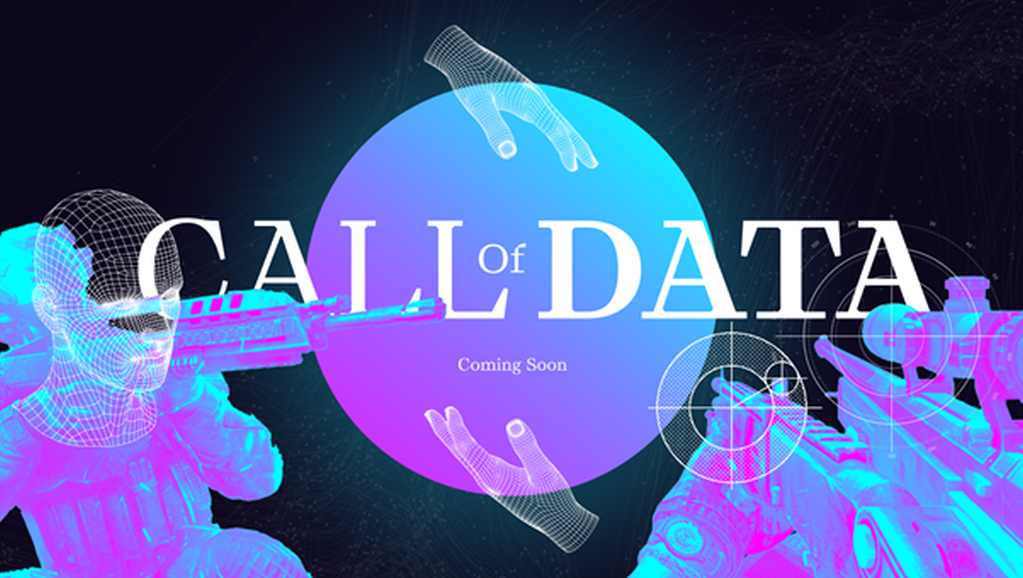
Going forward, Bluzelle plans to further drive network activity and developer adoption by showing that Bluzelle is secure and battle-tested for applications to use as a mainnet and also by having datasets readily available for developers to use and build applications.
Similar to how Defi Apps used yield farming to drive initial user adoption and network activity, Bluzelle is also launching “Call of Data” as an incentivized utility program to drive up storage.
Call of Data is a multi-month competition to engage all BLZ holders to upload data to Bluzelle and yield rewards. Each week, Bluzelle will offer up to $10,000 awarded to participants who perform the best, along with other prizes. There will be leaderboards, mini competitions, and more.
Call of Data will be a key component in the overall Bluzelle ecosystem. You won’t have to be a developer to participate. Bluzelle is also designing it so everyone in its community can get involved. Bluzelle told us they plan to provide more details next week.
Expanding to Defi
As stated above, the number one objective for Bluzelle is to increase network activity. And with all the solutions described above, the company sees its Bluzelle 2.0 as a natural place for Defi products to be built and forward that objective. Bluzelle has a thriving community that is holding, staking, or being an LP for BLZ on Uniswap. It only makes sense to complete the loop and have the products that we build in-house or partner with others to do. The first product on the roadmap is a DEX.
Defi on Bluzelle is great for BLZ holders and Defi developers because:
- Bluzelle offers 10,000 TPS
- Integration of IBC from Cosmos, Bluzelle seamlessly connects to other chains
- Top validators are not only interested in staking but also being LPs
- Superior oracle solution built-in
With Bluzelle 2.0, a DeFi developer can build a great application right away.
What’s coming next
Below is a number of things coming down the pike over the next 8 weeks:
- Ethereum and EVM support for Binance Smart Chain, Polygon, Tomochain, Fantom
- Mainnet upgrade to Cosmos Stargate bringing about more features
- Instant interoperability across all Cosmos Chains via IBC
- Mainnet for Oracles and file storage
- Call of Data
- Easy staking and conversion of BLZ tokens via Metamask-style browser plugin
- First Defi DEX on Bluzelle

